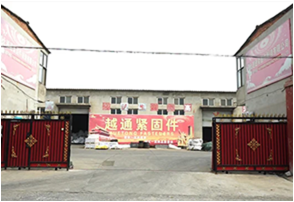Nov . 25, 2024 06:47 Back to list
mild steel nut
Understanding Mild Steel Nuts Characteristics, Applications, and Advantages
Mild steel, a type of carbon steel with a low carbon content, is widely used in various industries due to its excellent balance between strength, ductility, and weldability. One of the most common applications of mild steel is in the manufacturing of nuts, which are essential components in fastening systems. This article delves into the characteristics of mild steel nuts, their applications, and the advantages they offer.
Characteristics of Mild Steel Nuts
Mild steel nuts are typically made from low-carbon steel, which contains about 0.05% to 0.25% carbon. This composition endows the nuts with several important properties
1. Ductility Mild steel has high ductility, meaning it can be easily reshaped without breaking. This characteristic is crucial in the manufacturing process of nuts, as they need to withstand various manufacturing techniques like machining and forging.
2. Strength Although mild steel nuts are not as strong as those made from high-carbon steel or alloyed steels, they exhibit adequate tensile strength for many applications. This strength can be enhanced through processes such as heat treatment.
3. Corrosion Resistance Although mild steel is not inherently corrosion-resistant, it can be treated with coatings like zinc plating or galvanization to protect it from rust and other forms of corrosion. This makes mild steel nuts suitable for outdoor applications.
4. Cost-Effectiveness Mild steel is relatively inexpensive compared to other metals. This makes mild steel nuts a cost-effective choice for manufacturers and builders, allowing for affordability without significantly compromising on quality.
5. Availability Mild steel is readily available in various forms and grades, making it easy to source the right type of nuts for specific applications.
Applications of Mild Steel Nuts
Mild steel nuts are utilized in a broad range of applications across different industries, including
1. Construction In construction, mild steel nuts are commonly used in conjunction with bolts to secure structural components, HVAC systems, and equipment. Their ability to hold large loads makes them ideal for buildings and bridges.
2. Automotive The automotive industry relies heavily on mild steel nuts for assembling various parts of vehicles, from chassis components to engine parts. They are essential for ensuring mechanical integrity and safety.
mild steel nut

3. Manufacturing Machinery and equipment in manufacturing processes often use mild steel nuts due to their strength and reliability. They are crucial for assembling machinery parts and ensuring operational efficiency.
4. Furniture Mild steel nuts are used in furniture assembly, providing stability and durability to items like tables, chairs, and cabinets. Their aesthetic compatibility with various finishes makes them a popular choice in the furniture industry.
5. Electronics In the electronics industry, mild steel nuts are utilized in assembling electronic devices and components. Their lower weight compared to other metals makes them particularly advantageous in portable devices.
Advantages of Using Mild Steel Nuts
Choosing mild steel nuts for various applications comes with several advantages
1. Versatility Mild steel nuts can accommodate a wide range of applications due to their various sizes and configurations. This versatility allows manufacturers to use them in diverse settings without changing the core materials.
2. Simplicity in Manufacturing The ease of machining mild steel makes it simpler for manufacturers to produce nuts with precise dimensions and crucial tolerances.
3. Weldability Mild steel’s favorable welding characteristics allow for easy assembly and integration into larger systems, reducing the need for additional fastening components.
4. Recyclability Mild steel is recyclable, making it an environmentally friendly choice. The recycling process for metals is well established, contributing to sustainable practices in manufacturing.
5. Improved Performance Depending on the specific requirements of applications, mild steel nuts can be produced or treated to enhance their performance characteristics, such as increased corrosion resistance or improved tensile strength.
Conclusion
Mild steel nuts play a vital role in a multitude of industries, serving as essential components in fastening systems. Their characteristics, such as ductility, strength, and cost-effectiveness, make them an excellent choice for various applications. With the ongoing advancements in manufacturing technologies and materials science, mild steel nuts will continue to be a reliable choice for engineers and manufacturers in the future. Whether you're in construction, automotive, or manufacturing, understanding the benefits and applications of mild steel nuts is crucial for making informed decisions in your projects.


